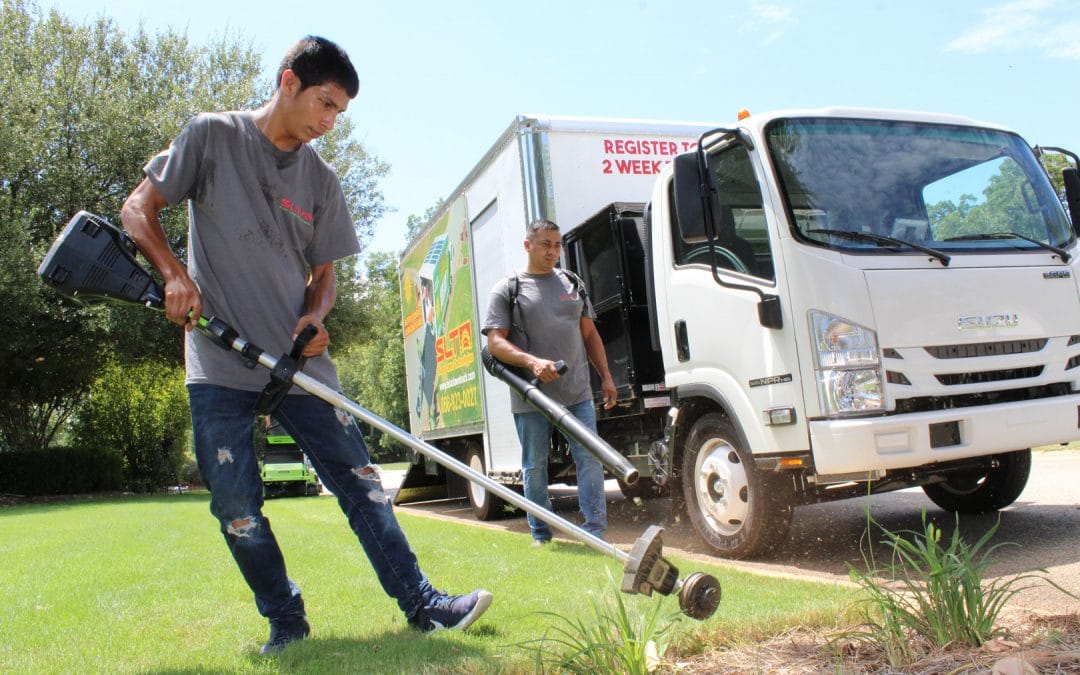3 steps to maximize the value of your landscape company
Is money the key to happiness?
That depends on who you ask.
It also depends on how much money you’re talking about.
An organization called the PNAS (Proceedings of the National Academy of Sciences) publishes thousands of research papers every year. One particular study conducted by Daniel Kahneman and Angus Deaton of Princeton University in 2010 examined how a higher income level affects emotional well-being.
The study found that while income positively affects a person’s view of their life in general, making a lot of money has its limits. A person’s emotional well-being is positively affected only up to a certain point: roughly $75,000 a year. In other words, whether a person makes $75,000 a year or $750,000, he or she is generally in the same state of emotional well-being.
That makes sense. A person could make a boatload of money, but have to work ungodly hours and undergo an enormous amount of stress in order to get there.
That spurs a couple of questions landscape company owners should ask themselves:
- What do I want out of life?
- Why am I in business for myself?
- How much money do I need to make to make it all worth it?
In addition to making a good living, landscape company owners should strive to build the value of their companies. This provides the opportunity for a more lucrative exiting of the business should they ever decide to sell.
To increase the value of their companies, landscape company owners should focus on three steps.
#1: Ensure double-digit profitability
Every landscape company should have double-digit profitability — in addition to the owner paying him or herself a fair salary and benefits. Owners who rely on profits to “make a living” are making a mistake.
The easiest way for a company to put itself on a path toward legitimate double-digit profitability is to raise prices. Raising prices will always be the first step to take.
#2: Establish reoccurring revenue streams
Landscape companies with reoccurring revenue streams are always valued at higher multiples of income than companies focused on “one-time projects”. In other words, companies with significant revenue streams from maintenance, fertilization and snow removal are more valuable than companies weighted toward design/build and irrigation system installation.
It’s simple: reoccurring revenue means cash flow … and prospective buyers like cash flow.
#3: Invest in your people
Companies must invest in the training and development of their staff. Then, in the absence of the owner, the company can carry on in the same fashion without the fear of lost clients or operational dysfunction. This is of great value to a potential buyer.
Developing staff can be a challenge in the landscaping industry because companies are generally dealing with a lower-paid, relatively unskilled labor force. At the same time, there is a great opportunity for companies that can provide employees with an opportunity to learn, grow and advance their careers.
One big plus in the landscaping industry is that a great deal of “technical training” is available from associations, suppliers and other sources. But when it comes to the “soft skills” necessary for entry-level laborers to develop into managers and leaders, it is largely up to the landscape company owners themselves to help bring this evolution about. This requires commitment.
Landscape companies must develop a step-by-step process to help their people climb the ladder of success. When a landscape company can help a $20,000-a-year employee see a path toward $30,000, there is a significantly higher probability of retaining that employee.
This brings us back to that study on how personal income affects emotional well-being.
Increases in income will positively impact a person’s emotional well-being up until the point they are making around $75,000 a year. Think about how many of your employees fall into that category. Then, think about the opportunity that provides you to impact your employees in a positive way — while also building the value of your company.
This article was written by Gregg Wartgow adapted from The Wealthy Landscaper Training series presented by Tony Bass (2019).

